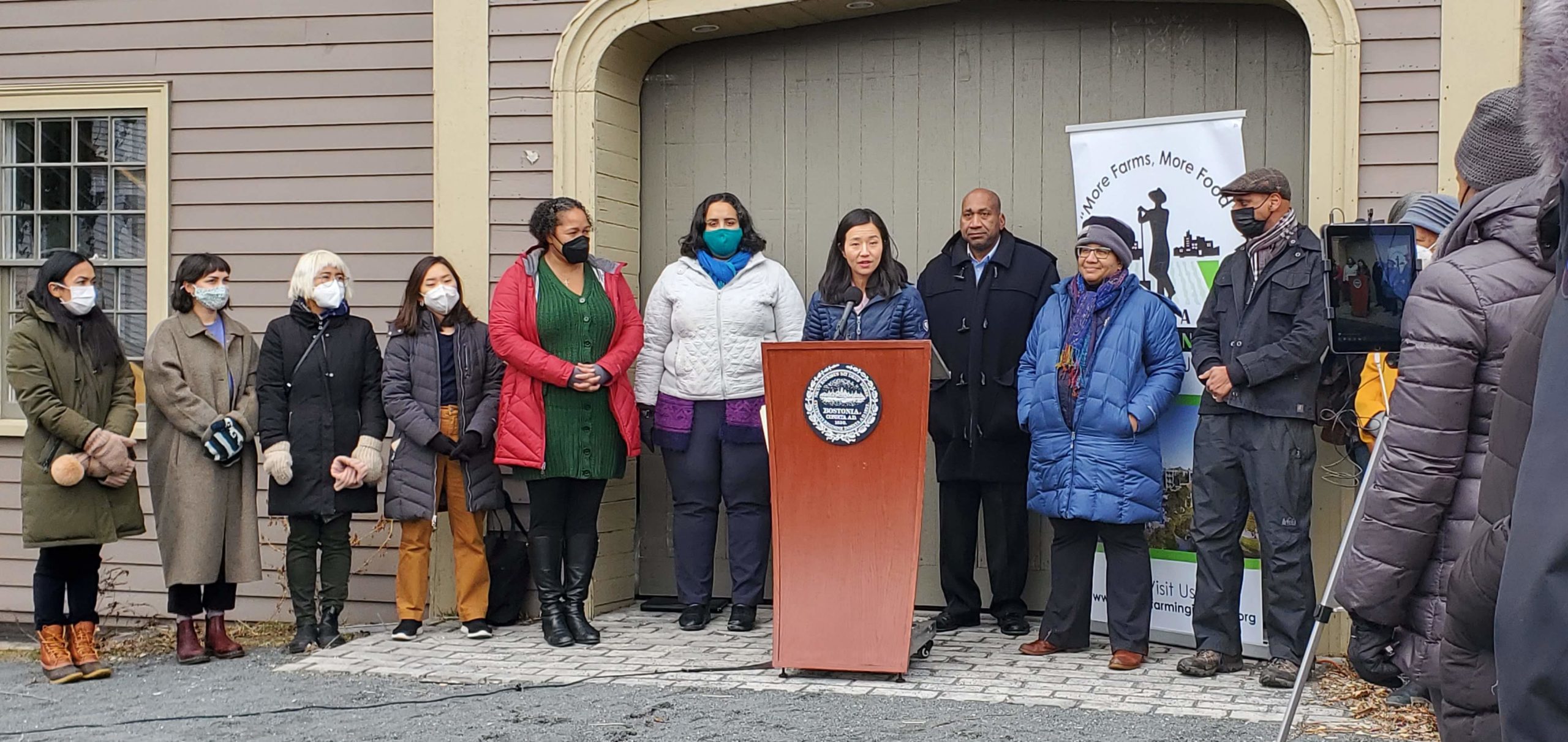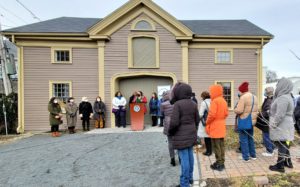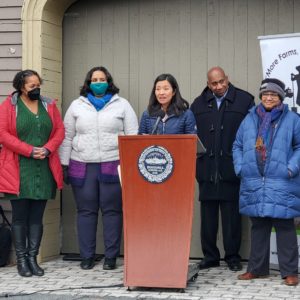
01 Mar 2022 Mayor Michelle Wu announces new food and agriculture offices at Fowler Clark Epstein Farm
The Fowler Clark Epstein Farm in Mattapan was backdrop to Mayor Michelle Wu’s February 24th announcement of two new offices: “Grow Boston,” the City’s first-ever office devoted to urban agriculture development, and the “Mayor’s Office of Food Justice.”
Mayor Wu’s initiative named planner and agriculture advocate Shani Fletcher as director of the new Grow Boston office, which will report to the Department of Neighborhood Development and focus on land use, planning and systems that support expanded access to farming for local fresh food production.

Wu’s Office of Food Justice will report to Environment Chief the Rev. Mariama White-Hammond and aims to improve access to nutritious affordable healthy food for Bostonians.
Mayor Wu chose the 1786 Fowler Clark Epstein Farm for this announcement for its success in expanding agricultural initiatives in Boston’s neighborhood through food production and training initiatives that enable expanded access to fresh food from local sources.
“This property just sat empty…for 75 years, one of the oldest farmhouses in Boston,” said Wu. “For the longest time, it sat here waiting for someone to notice…Seven years ago community leaders, community members and residents came together to build something special.”
The Fowler Clark Epstein Farm – once part of a much larger farmstead in the agrarian village of Mattapan – reflects the many phases of Mattapan’s development and demographics. It was built in 1786 by Samuel Fowler whose family owned it until the early 1800s when it was sold to the Clark family. Several generations of Clark family members occupied the property and farmed the land until 1941 when the property was sold to Jorge Epstein whose family lived there until 2015. In that span of time, the mostly agrarian Mattapan evolved into a streetcar suburb with population and Dorchester’s annexation to Boston. Former farmland became streets of three-deckers. The one-acre Fowler Clark Epstein Farm, however, retained enough land and its historic buildings to express its agricultural beginnings.
Historic Boston Inc. (HBI) purchased the property in 2015 to prevent the site’s house and 1860s barn from falling into further disrepair, and worked with the Urban Farming Institute of Boston (UFI), the Trust for Public Land, and North Bennet Street School to redevelop the site as UFI’s headquarters and training center with a processing area for produce, greenhouse and demonstration farm.

Opened in 2018, the Farm produces food available at a summer farm stand to neighbors, and for delivery to area restaurants. New farmers train in a classroom in the former barn where there is also a demonstration kitchen. The property has garnered accolades for its restoration, including the National Trust for Historic Preservation’s Driehaus Award.
According to Mayor Wu, the Fowler Clark Epstein Farm reinforces her goal bringing communities and small businesses together through farming and to give residents easy access to fresh food. “Because of the effort here” she said, “We see this farm is able to provide food and nourishment to the residents of Mattapan and Dorchester.”
For more information, visit the web sites for the Office of Food Justice, Grow Boston and the Urban Farming Institute at the Fowler Clark Epstein Farm



